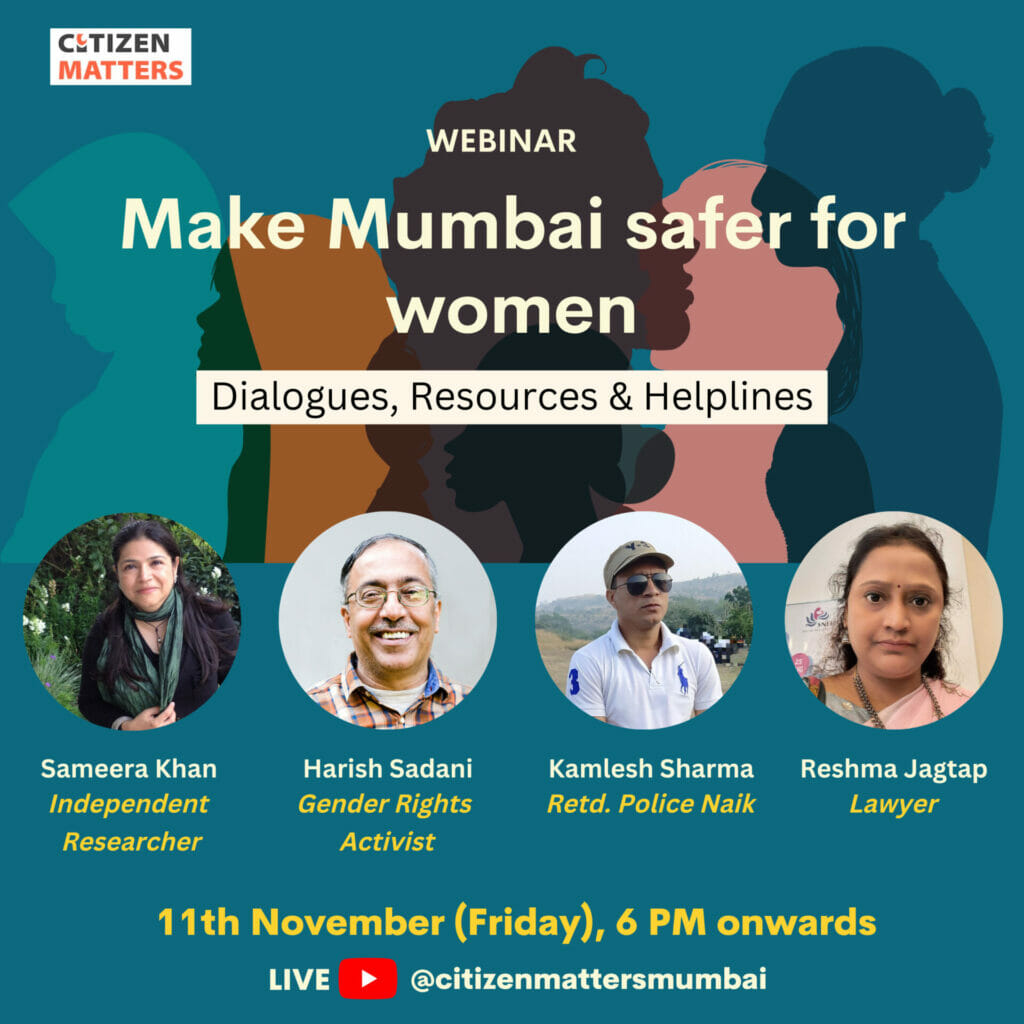In its annual report titled ‘State of Policing and Law and Order in Mumbai, 2022’, PRAJA Foundation revealed that 98% of the total cases in Class II serious offences, including murder, crimes against women and cases under Protection of Children from Sexual Offences (POCSO) Act are pending for trial. In cases where the trials were completed, 86% ended in an acquittal or discharge. The data was based on findings from applications under the Right to Information (RTI) Act and data published by the National Crime Records Bureau (NCRB).
Read more: Is Mumbai really safe for its women? Data suggests otherwise
As cases of rape, molestation and other forms of sexual violence continue to rise, there is a need to examine the current institutional mechanisms available to survivors to seek justice.
Are women able to access police stations, helplines like the Nirbhaya Helpline and other mechanisms at the workplace, school and college to make sure their perpetrators are punished for their crime?
Are the institutions responsive to the survivor’s experiences and do they provide a safe space for them to register complaints?
How can lawmakers and law enforcement authorities implement policies and schemes to make the city safer?
Keeping the spotlight on systemic approaches to women’s safety will also ensure that public spaces like roads, bus stops, toilets, shops and parks are safe for all women at all times.
A discussion focussed on women’s safety
To discuss the above and more, Citizen Matters Mumbai has organised a webinar that will hear from experts and activists in the field on
- How to reverse the rising curve of crimes against women in the city
- How to approach legal and institutional help: Challenges, concerns and possible solutions
- How to improve the existing mechanisms to address women’s safety and how to best make use of them
- Solutions and participatory models for making cities safe for women
Join us for this webinar on Friday, November 11, 2022 at 6 PM where we will explore, together with our eminent and experienced panel (scroll down to know more), the different ways in which women navigate the city, what a gender-just Mumbai would look like, and the existing resources that women can leverage to feel and be safe in the city.
The discussion will be live-streamed on our YouTube channel. Follow and subscribe to our channel here to join us for the discussion.

Read more: “Not even offered a glass of water”: A sexual violence survivor speaks out
Our speakers
Sameera Khan
Sameera Khan is a Mumbai-based independent journalist, researcher and co-author of the critically acclaimed book, Why Loiter: Women & Risk on Mumbai Streets which examines women’s access to public space. A journalist for three decades, her current writing, teaching and research interests revolve around media, gender, Muslims and Mumbai.
In the last decade, as a media trainer she has guided journalists on how to cover violence against women, particularly rape. She won the National Laadli Media Award for Gender Sensitivity 2020 for her consistent engagement as a teacher, trainer, researcher and a journalist in promoting sensitive reporting on gender-based violence.
Follow Why Loiter? on Instagram.
Harish Sadani
Harish Sadani is a leading gender rights activist who has pioneered efforts in India in 1993 as the co-founder and executive director of Men Against Violence and Abuse (MAVA), where he works with young men and boys to prevent violence against women. Currently, he is also a Consultant and Trainer to Corporates, Universities and NGOs on gender sensitivity, anti-sexual harassment at workplace and other gender matters. He is a TEDx speaker and an Aspen Fellow and has been invited by national and international bodies like UN Women and UNFPA to share insights and build capacities of various stakeholders on addressing issues of gender-based violence against women.
Kamlesh Sharma
Kamlesh worked in the Mumbai Railway Police Department as a Police Naik for 4 years. He was part of the Control room, especially on the Women Safety Helpline. He is now a Physical Educator at a school in Delhi and also a student of Law. While working on the safety helpline, he would go beyond his jurisdiction and provide help through the local police stations. His team solved blackmailing cases, teasing and domestic abuse related complaints.
Reshma Jagtap
Advocate Reshma Jagtap is a Programme Coordinator- Legal System at SNEHA in their Prevention of Violence against Women and Children programme. She has completed her LLB, LLM and PG diploma in Journalism. Prior to joining SNEHA, she worked at Human Rights Law Network from 2006 to 2010 and has been the legal coordinator at SNEHA from May 2017.
Read more about SNEHA and Reshma’s work on their website.
Follow Citizen Matters on YouTube to attend the webinar!